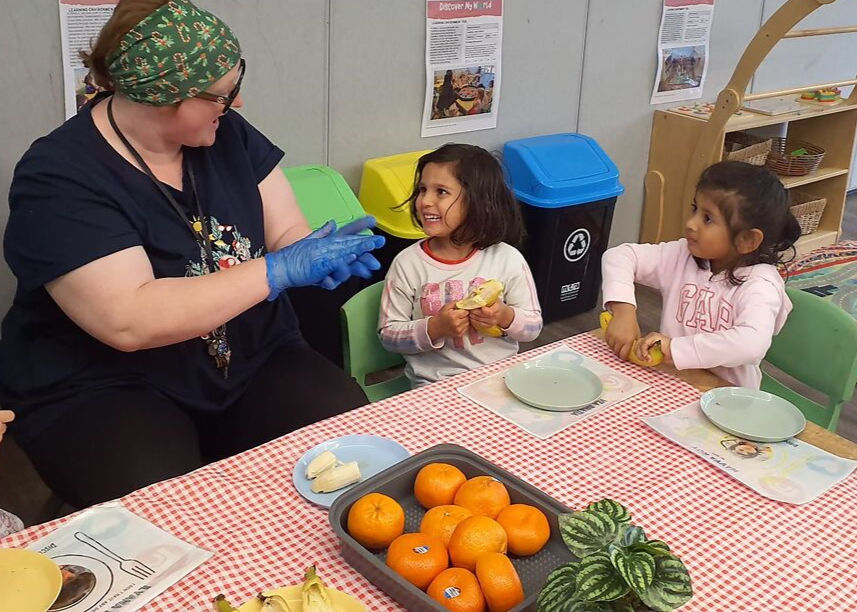Building Empathy in the Early Years
- Discover My World

- Sep 11, 2025
- 2 min read
Updated: Sep 11, 2025
At Discover My World, we believe empathy is at the heart of raising kind, resilient, and connected children. From the very first years of life, children are developing the ability to recognise emotions in themselves and others, a foundation for friendships, collaboration, and community.
Why Empathy Matters
Empathy is more than “being nice.” It’s the ability to step into another person’s shoes and respond with care. Research from the Australian Childhood Foundation highlights that nurturing empathy in the early years builds stronger mental health, improves relationships, and helps children develop a lifelong sense of social responsibility.
In early childhood, empathy looks like:
Comforting a friend who is upset.
Sharing resources during play.
Noticing when someone is left out and inviting them in.
Using words to express concern: “Are you okay?”
These small, everyday actions are powerful building blocks for the future.
How We Build Empathy at Discover My World
Our philosophy places relationships at the centre of learning. Educators model empathy by listening deeply to children, validating feelings, and using respectful language. We embed empathy into daily practice by:
Encouraging children to label and talk about feelings.
Reading stories that explore kindness, fairness, and inclusion.
Creating opportunities for children to care for others, from helping a peer to caring for plants and animals.
Partnering with community groups (such as aged care visits) to extend children’s understanding of different perspectives.
Empathy and the EYLF
The Early Years Learning Framework (EYLF V2.0) recognises empathy as vital to children’s sense of identity and wellbeing. You’ll see this reflected in:
Outcome 1: Children have a strong sense of identity - they learn to interact with care, empathy, and respect.
Outcome 2: Children are connected with and contribute to their world - they become aware of fairness, inclusion, and social responsibility.
Outcome 3: Children have a strong sense of wellbeing - understanding and supporting others strengthens their own resilience.
When children experience empathy in action, they are not only learning about it but living it every day.
Building Empathy Together - Families and Educators
Families play a crucial role in growing empathetic hearts. The Raising Children Network recommends:
Talking about feelings openly at home.
Praising kind and caring behaviour.
Encouraging children to see situations from different perspectives.
Being a role model, children learn empathy best when they see it in action.
When educators and families work hand in hand, children are surrounded by consistent, loving messages about kindness, respect, and care.

Our Commitment at DMW
At Discover My World, empathy is woven into our daily rhythm, from morning hellos to group projects, from problem-solving in play to moments of comfort after tears. We see empathy as the glue that binds our community together, preparing children not just for school, but for life.
Together, we are raising the next generation of changemakers, children with big hearts and little hands who will shape a more compassionate world.























Comments